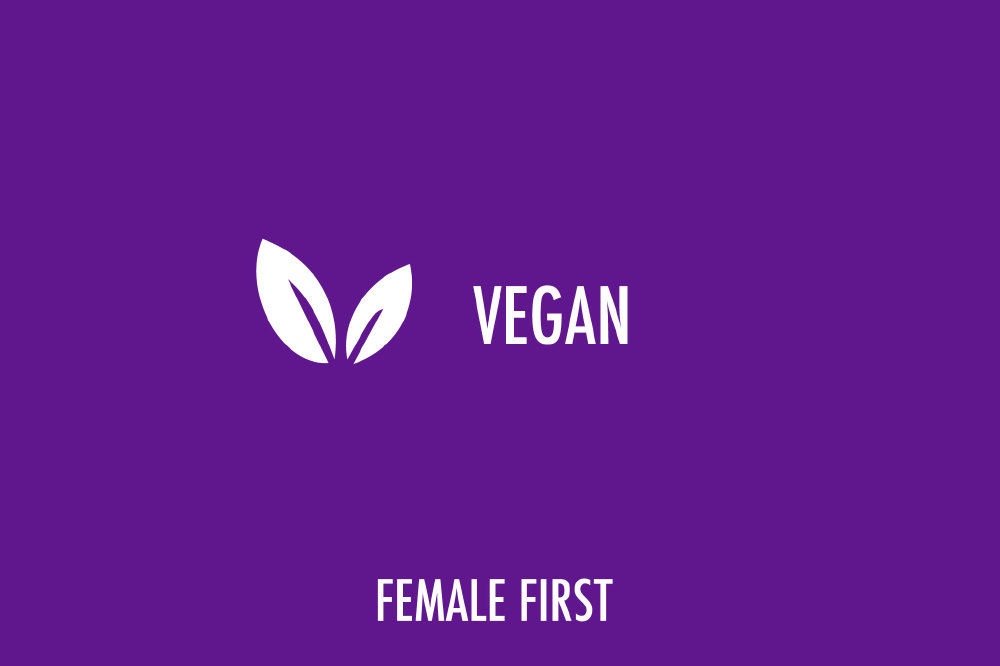Storing food correctly not only helps maintain its flavour and nutrition, but also contributes to the battle against food waste - which currently sees us throw away over 7 million tonnes of food a year[1].

Vegan on Female First
Sometimes, it can be tricky to know which foods should be kept in the fridge, freezer or cupboard however, or if certain foods should be stored apart.
Did you know for example that that tomatoes are sensitive to plant hormones given off by avocados so should be stored away from them?
Below, Food Safety & Nutrition Consultant, Barbara Bray and Director Regulatory & Technical Affairs of California Walnuts, Carl Eidsath share storage hacks for five of our favourite health foods – from walnuts and dark chocolate, to tomatoes.
So read on to find out how with some simple planning, a little knowledge and a few easy changes, you can help maintain the taste, quality and freshness of your favourite foods and snacks.
Avocados
Firm avocados can be ripened by keeping them at room temperature until they are ripe. Like tomatoes, avocados respond well to plant hormones from other items in the fruit bowl such as bananas. If you are in a hurry, pop them into a brown paper bag with ripe bananas overnight to kickstart the process.[2] Putting hard or firm avocados in the refrigerator is not effective as the temperature will slow down the ripening process and could result in a part-ripened avocado, or an avocado that never softens - making it inedible. Just remember, cool temperatures slow down ripening and room temperatures encourage it.[3]
Apples
Snacking on a crunchy apple is a great way to get a source of fibre. They contain the gut-friendly prebiotic ‘fibre pectin’, which helps to feed good gut bacteria and regulate our digestive health.[4] Rather than putting them in the fruit bowl where they will soften and shrivel, store them in the fridge where the cold temperature will keep them crisp for weeks. According to WRAP, apples are one of the top 5 fresh foods thrown away every day and this can be avoided with proper storage.[5]
Walnuts
Walnuts kernels are best stored in either their original packaging or an airtight container in the fridge or freezer, rather than the kitchen cupboard. Walnuts will last up to 6 months when kept in the fridge (2°C-5°C) and up to 12 months in the freezer. Storing walnuts in the kitchen cupboard can reduce shelf-life and taint flavour.
Tomatoes
The flavour and quality of tomatoes really comes out at room temperature so when you get them home, take them out of the plastic wrapper or packaging and pop them in the fruit basket. They are sensitive to the plant hormone given off by both bananas and avocados so do keep them apart. Tomatoes are sub-tropical fruits and really don’t like the cold. They continue to ripen after they have been picked and over-ripe tomatoes will soften more quickly once refrigerated.[6]
Potatoes
Correct storage is important for both nutrition and safety. Potatoes become green when they are stored in the light and this indicates that plant toxins are present which can be harmful if consumed. Normally, the green is only in skin so it can be peeled off before cooking. Storing potatoes in hessian or brown paper bags in a cool airy place keeps them in good condition. Although they need to be kept cool, refrigeration is not ideal because the low temperature reduces the level of healthy resistant starch* slightly over time and sugars develop. Whilst it isn’t a health issue, it is better to keep good levels of resistant starch in potatoes as this is beneficial for gut health.[7]
[1] http://www.wrap.org.uk/content/household-food-and-drink-waste-uk-0
[2] https://www.avocado.co.za/ripening-and-storage/
[3] https://www.californiaavocado.com/avocado101/how-to-choose-and-use-an-avocado#store-cac
[4] http://greatbritishapples.co.uk/fuel-your-fibre-intake-with-british-apples/
[5] http://www.wrap.org.uk/content/apple-day-gets-thrown-away
[6] http://www.britishtomatoes.co.uk/
[7] http://cookyourownpotatoes.org.uk/knowledge-and-skills
Tagged in Vegan

